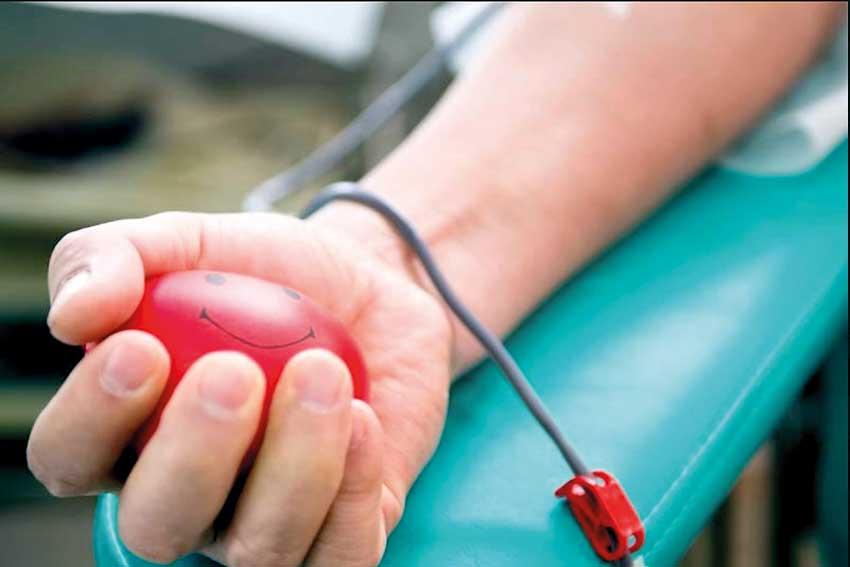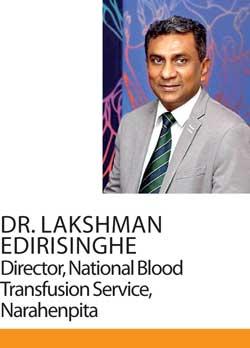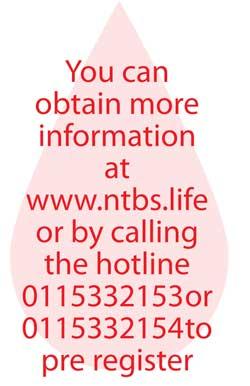Reply To:
Name - Reply Comment

 Almost all of us have dreamt of being a superhero and saving lives in our childhood. Though it was only a fantasy, did you know that you can actually save hundreds of lives throughout your lifetime, with very little effort, by becoming a blood donor? Blood is an essential component to sustain human life. Until the discovery of transfusion of blood and blood products, thousands of people used to die daily due to blood loss during accidents, childbirth and through other blood related diseases. Even though the science of blood transfusion has made great strides since, no alternate substitute for human blood has ever been discovered, thus, a human donor is the only method of saving lives of the said thousands of patients requiring blood.
Almost all of us have dreamt of being a superhero and saving lives in our childhood. Though it was only a fantasy, did you know that you can actually save hundreds of lives throughout your lifetime, with very little effort, by becoming a blood donor? Blood is an essential component to sustain human life. Until the discovery of transfusion of blood and blood products, thousands of people used to die daily due to blood loss during accidents, childbirth and through other blood related diseases. Even though the science of blood transfusion has made great strides since, no alternate substitute for human blood has ever been discovered, thus, a human donor is the only method of saving lives of the said thousands of patients requiring blood.
National Blood Transfusion Service (NBTS) of Sri Lanka, comprising blood banks throughout the country, is renowned for its voluntary and non remunerated donor base, maintaining a steady supply of blood products to match the demand, for decades. “NBTS collects around 450,000 units of blood annually”, states Dr. Lakshman Edirisinghe, Director, National Blood Transfusion Service, Narahenpita.

Around 85% of this blood is collected through mobile donation camps organised islandwide, while less than 15% of the donated blood is obtained through in-house donors, who donate blood by coming directly to the blood bank, according to the doctor.
In Sri Lanka, the average demand for blood is as high as 1200 to 1500 red cell units per day and 700 to 800 platelet units per day. Even though the demand for blood came down initially during the first COVID-19 wave in March, due to the routine surgical procedures requiring blood being cancelled, there remained a basal requirement level of 600 – 700 units of Red Cell Concentrate and around 400 units of platelets.
This basal demand remains constant due to the regular requirement of blood products from certain groups of patients. Patients suffering from chronic illnesses, especially patients with certain types of cancers, require regular transfusions, majority of demands coming from Apeksha Hospital Maharagama and the pediatric cancer patients at Lady Ridgeway Hospital. In addition, the significant number of Thalassemia patients in the country also require cyclical blood transfusions for the continuation of their lives.
Around 900 to 1000 deliveries happen throughout the country in an average day. These mothers, some undergoing Cesarean section, others with complicated deliveries, require a significant amount of blood, Dr.Edirisinghe explains.
With the progression of the first wave, with the inability to organise mobile donation camps, the stocks of blood depleted to dangerous levels within two weeks into the crisis situation. The members of the tri-forces were the first to volunteer, offering their blood to replete the stores, in addition to their other numerous duties.
In addition, NBTS set up two hotlines functioning 24 hours/ day, as well as a special website, to facilitate the donors who are willing to donate blood by visiting a blood bank, through pre booked appointments. As it became more difficult to arrange blood donation camps in the travel restricted and high risk areas, NBTS optioned to visit the peripheries of the country, working relentlessly to organise mobile blood camps, in order to fulfill the demands of the patients.

“The most recent series of mobile camps organised in Polonnaruwa District, with the patronage of local entrepreneurs, politicians as well as the clergy, was a resounding success”, declares Dr. Edirisinghe, while urging the public the need to adhere strictly to the guidelines in preventing COVID-19 in any future mobile blood donation camp organised. Any person who is between 18 – 55 years of age, is in good health and has had no risk behaviour, can donate blood. The gap between two blood donations should be at least four months. Donating blood doesn’t have adverse effects on your health as you are selected as a blood donor only after a thorough interview of your health by a doctor, assuring the eligibility to donate. While you are advised to avoid strenuous activities and take abundant fluids for the next 24 hours after donating blood, the volume of blood that you lost would be replaced within the next 48 hours and the components, within the next 2-4 weeks.
In addition to these usual guidelines, with the current COVID-19 situation, Dr. Edirisinghe requests people who are having fever and cold like symptoms, people who had close contacts with COVID-19 patients or patients having similar symptoms, people who returned from a foreign country within last three months or having family members who recently returned from abroad, to not visit donation centres considering the safety of the public.
Two hotlines are available throughout the day for you to pre book your appointment to donate blood at the centre nearest to you. You can obtain more information at www.ntbs.life or by calling the hotline 0115332153 or 0115332154 to pre register. Even though a blood transfusion would take only 15 minutes of your time, that little time off your life has the potential to gift a lifetime to three other humans. So this is your turn to be a superhero and save lives by giving away a little amount of your blood.